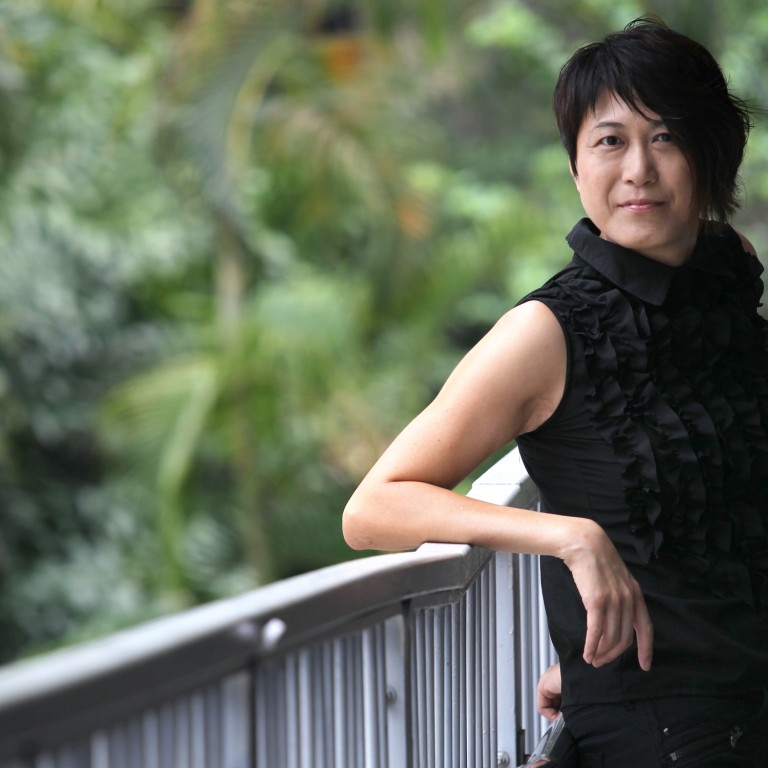
New | Transgenders 'should not have to undergo sex change before getting married in Hong Kong'
Anger at proposed bill that would make legal recognition dependent on full sex-change surgery
A draft law which would force transgender people to undergo full sex-change surgery before marrying in their chosen gender is too “simplistic” and “restrictive”, the Equal Opportunities Commission says.
The Security Bureau introduced the proposed amendment to the Marriage Ordinance last Friday in response to last year’s landmark Court of Final Appeal ruling granting a woman born a man the right to marry.
If passed, the amendment would write into law the government policy of recognising transgender people only after the removal of their genitals and construction of new ones.
But activists say not all transgender people want to or can undergo the surgery, which would leave them unable to have children, while lawyers question whether the law is in line with the instructions set by the top court.
“The EOC believes that the current practice of only recognising those persons who have fully completed sex reassignment surgery to acquire their reassigned gender is over simplistic and too restrictive,” a commission spokeswoman said.
“The government has to address the issue that many transgender persons may not be able to undergo or complete sex reassignment surgery due to health and/or psychological reasons.”
Chong Yiu-kwong, a solicitor and legal academic, supported the commission’s criticism and accused the government of failing to take heed of the instructions of the top court when it ruled in favour of the litigant, who was named only as W.
“Some people’s health may not be fit for such a big surgery and we should discuss whether to enable them to change their sex in law,” he said.
“The court had asked for a comprehensive review of laws related to transgender issues … but the government has only allowed for one option – requiring complete surgery – which is very disappointing.”
Kelley Loper, deputy director of the centre for comparative and public law at the University of Hong Kong, said the government had “ignored the court’s advice to avoid developing a ‘bright line’ test when deciding whether a transgender person is ’male’ or ‘female’.”
The court had said an individualised assessment of the person in question made better sense and suggested the government look to British legislation as a “compelling” model. Britain passed its Gender Recognition Act in 2004, which created a panel of experts who consider individual applications, and surgery is not necessary.
References to the “coercive” effect of requiring surgery also come up several times in the Court of Final Appeal judgment. For example, the court favourably cites British judge Lord Nicholls, who said that “drawing the line at the point where full [surgery] has been undertaken may have an undesirable coercive effect on persons who would not otherwise be inclined to undergo the surgery”.
Meanwhile, activists from Hong Kong were in Geneva this week to call on the United Nations’ to denounce the proposed bill.
“We are calling for the removal of the sterilisation requirement for transgender persons to be legally recognised,” said Joanne Leung Wing-yan, the first transgender person from Hong Kong to speak before the UN Committee on the Elimination of Discrimination against Women (CEDAW).
“The Hong Kong government’s proposal to write such a requirement into the law is simply going against every international acceptable standard,” said Leung, who chairs the local Transgender Resource Centre.
In addition to possible relevance under the CEDAW convention, Sam Winter, an expert in transgender studies and associate professor at the Faculty of Education at the University of Hong Kong, said the city’s transgender policies may also violate articles in the International Convention on Civil and Political Rights (ICCPR).
"The Court of Final Appeal had referred to Britain’s recognition system as a compelling model where transgender people would get the right to change their gender after demonstrating to an independent panel a history of living in their experienced gender,” he said.
“Such a proposal, I must stress, is not a radical one. What is cruel and inhumane is to demand that they should undergo medical procedures in order to gain recognition,” Winter said.
In response to criticisms, a spokesman for the Security Bureau said the marriage amendment bill was in accordance with the top court’s ruling. He said an interdepartmental working group had been set up to review of legal issues concerning the rights of transsexual people and to review relevant laws in other jurisdictions.
When asked whether the government would consider input from transgender people and experts, the spokesman said that “as and when appropriate, the working group will also conduct consultations and engage the assistance of relevant experts or professionals”.
Lawmaker Dr Priscilla Leung Mei-fun said she supported existing policies on gender recognition because a “wider view would create confusion”.
“The marriage system should not entertain such situations where someone has only changed part way into the [opposite] sex, just as it shouldn’t recognise polygamous relationships,” Leung said.
The amendment is due to go before the Legislative Council on March 19.
The CEDAW committee meets regularly with participating states to review progress and make recommendations for improvement on issues affecting women. In its last review of the city in 2006, the committee urged Hong Kong to change legislation to better combat domestic and sexual violence and improve the rights of indigenous women and female asylum seekers, among other suggestions.
This week’s meeting concluded on Friday, but the committee will meet again with Hong Kong government and civil society delegates for another dialogue in October before issuing a new set of recommendations.

